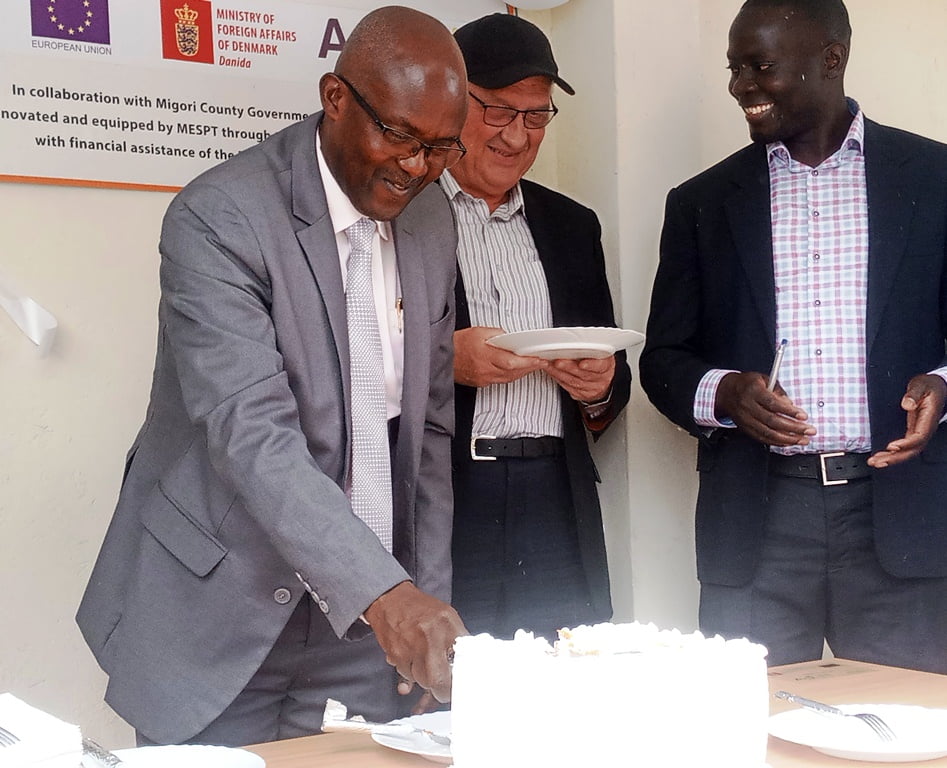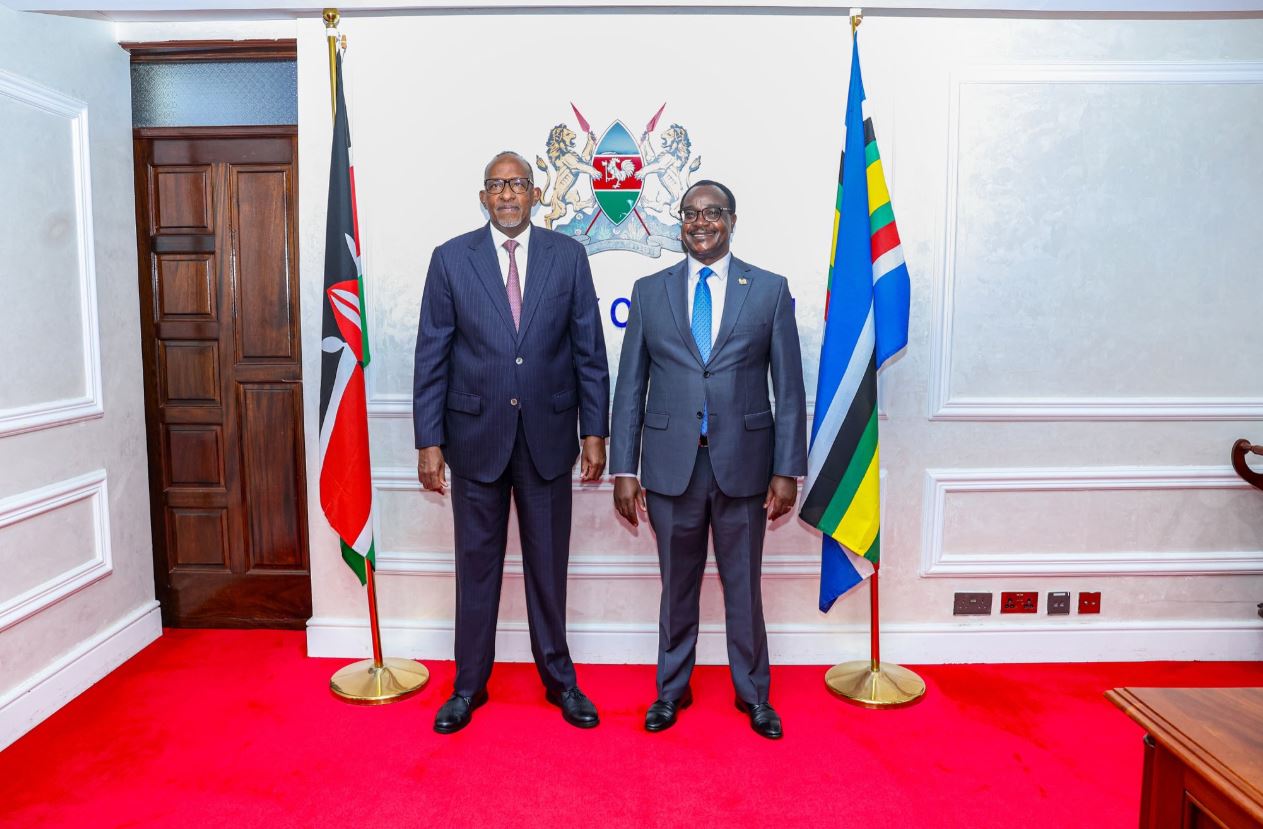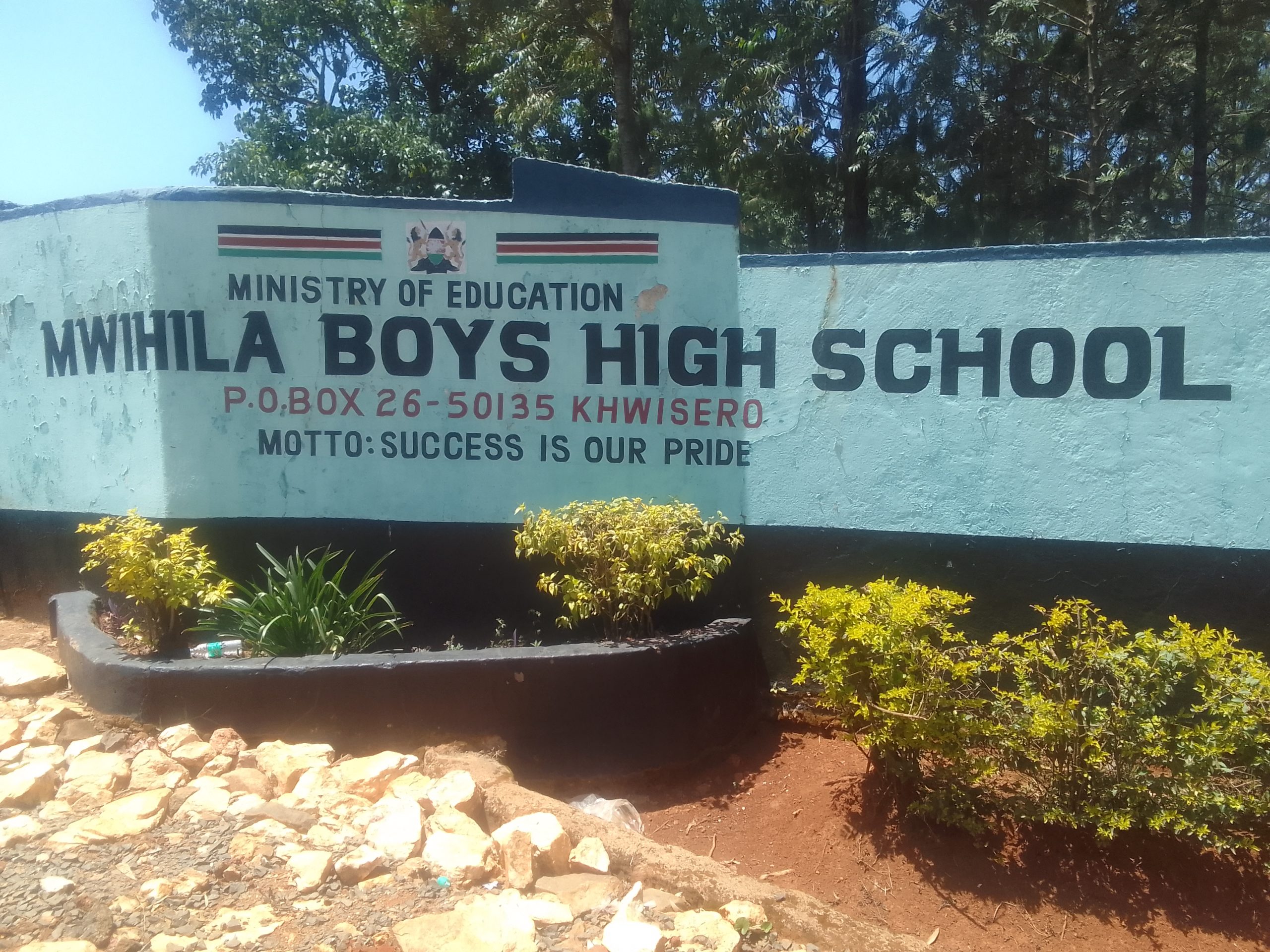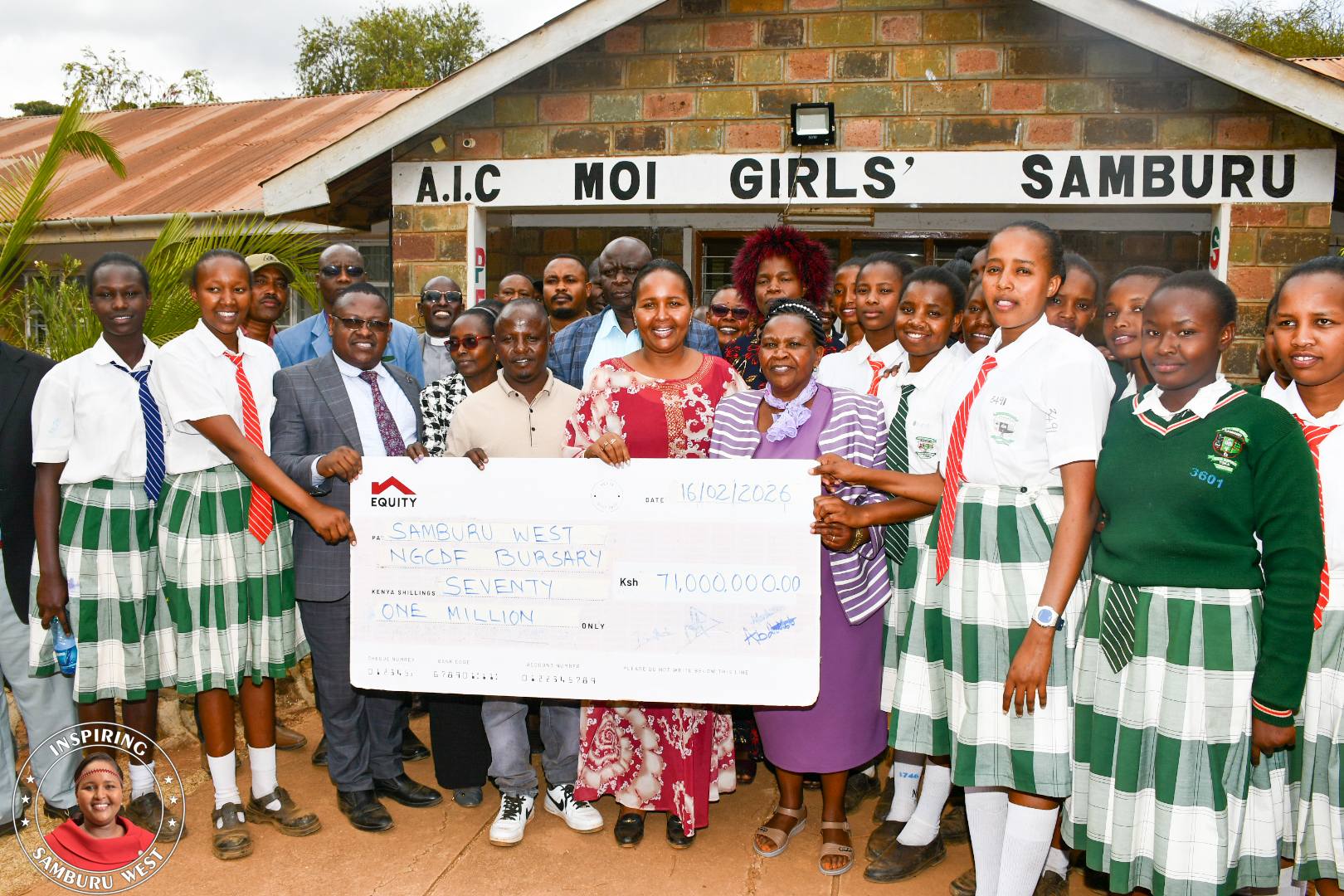By Norah Musega
Migori County Government and Royal Danish Embassy have partnered to upgrade an agricultural training institute in the county which will help in tackling climate change and digitization of the agriculture sector.
Miyare Agricultural Training Institute in Rongo sub-county which seats on 25 acres of land has been a center focused on helping farmers from Homa Bay, Migori, Kisii, Narok and Nyamira Counties.
County Agriculture Executive, Lucas Mosenda, said through funding from the embassy and the county government they renovated the computer lab, face-lifted a training hall to be digital among other work.
“We have also trained six trainers, build hostels and created a modern zero grazing unit for dairy and value addition,” Mosenda said.
He was speaking during a hand over ceremony overseen by Mogens Larsen from the Royal Danish Embassy.
“We will be able to train farmers in dairy, poultry, fish farming and horticulture sectors in short courses and also online,” Mosenda said.
In regard to climate change, farmers will have a one stop center to have aqua-ponics, which will use limited water for both fish and crop farming which will tackle droughts.
“We will also be able to have youths and farmers groups to work online using mobile applications to help get information and markets,” Mosenda added.
Out of the Sh10m upgrade; training of six trainers to be able to offer online courses at the renovated computer laboratory at Sh 2m which was equipped with ten desktop computers, power backups and stations among other equipment was done by the embassy.
A training hall was renovated for Sh3m and a state of the art zero grazing unit built and a dining hall was also renovated at Sh840,000.
Meanwhile, Migori County Government built a ten room hostel at Sh9.3m and equipped it with Sh2.1m to support donation from the embassy.
Larsen said Kenyan government plans to tackle climate change and include youths in agriculture will start by upgrading agriculture training institutes in counties.
“Farming happen in rural areas and such institutes will help impact information on climate change among rural communities and youths,” Larsen said.
He said in a push to boost food security, local agriculture training institutes should go digital.
“We have an agricultural app being launch and since youths are skilled in IT, training should move online and be centers of information and market surveys,” he said.
The institute has also been created to be a center of training farmers on using biogas, fuel from animal and farm waste, which will be key in tackling climate change.






